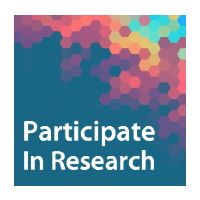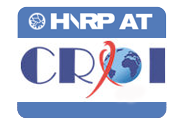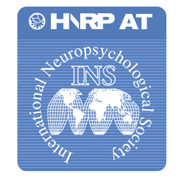Participant Accrual and Retention Resources
Participant Accrual and Retention (PAR) Resource Group Overview
The Participant Accrual and Retention (PAR) Resource Group provides consultation and technical support to Investigators who are seeking relevant, hard-to-reach and/or well-characterized research subjects. The resource group assists Investigators in rapidly and efficiently initiating studies and in successfully meeting subject recruitment goals. The group provides consultation and study design to enhance efficient resource utilization. Through technical support, the group works to ensure the overall quality of the participant’s research experience and provides Investigators with a mechanism to provide feedback regarding study findings to participants and to the local communities. Finally, the resource group works with Investigators to monitor human subjects regulatory requirements and ensure compliance.
Organization
The PAR Resource Group is managed by a senior Investigator (J.H. Atkinson, M.D.) and a Manager (Roberto Gallardo). Dr. Atkinson is a Professor of Psychiatry and provides overall direction and supervision of the resource team. Mr. Gallardo directly oversees all activities related to human subject accrual and retention, visit scheduling, and human subject regulatory compliance. Personnel include Recruiters, Schedulers, and Intake Visit Monitors. Staff members are dedicated to the specific studies and projects that support their efforts, however the group derives efficiencies and synergistic benefit from being collocated and co-managed.
Resources provided
The PAR Resource Group provides new and existing Investigators with consultation and technical support. Initial consultation may address study design and feasibility. Once a study is funded, technical support is available for identifying, screening, and enrolling specific hard-to-reach target groups. The resource includes a repository of prospectively gathered demographic and contact information on current and potential future research subjects. The group provides Investigators with assistance in assuring human subjects regulatory compliance and provides a mechanism for Investigators to acquire feedback from participants (for example, through focus groups) and community members (via a Community Advisory Board) for the purpose of quality assurance. Upon conclusion of a study, the group can facilitate dissemination of study findings to participants and members of the local community.
Scientific Consultation
The PAR Resource Group provide consultation on recruitment methodology including state-of-the art field techniques and methods for developing and maintaining mutually supportive referral networks with health care providers, community service agencies, and local opinion leaders. The group provides Investigators with information on how to meet the challenges inherent in identifying, enrolling, and retaining scientifically relevant and diverse groups of participants. Consultation may include assistance in creating study specific educational and promotional materials.
Trainees
Training is available in study promotion and outreach methodologies, subject identification, subject screening, visit scheduling, and mitigation of barriers to participation.
Cross-project Issues
The PAR Resource Group coordinates a regular participant clearinghouse conference, attended by staff of the PAR group and each of the HNRC-associated research cores. In the course of the conference, PAR staff provide updates to team members regarding new recruitment targets, progress towards achieving existing goals, opportunities and challenges in the community, etc. In addition, staff members are trained to evaluate potential eligibility of all active studies and make appropriate internal referrals. If an individual is eligible for another study, the staff member who performed initial screening may re-contact that individual to determine whether he/she willing to receiving information on another project. A potential participant will only be referred to another study when authorization has been obtained.
Contact the PAR Resource Group
For more information about the consultation and technical support the PAR Group can provide or to access PAR resources, please contact the PAR Manager, Roberto Gallardo (This email address is being protected from spambots. You need JavaScript enabled to view it.).
PAR Resource Group Technical Details
General Approaches/Methods
Over the past 20 years, the PAR group has been dedicated to enrolling and retaining informative cohorts which, by reflecting the evolving epidemiology, comorbidities, and treatment of HIV, serves as a resource to enable investigators to efficiently address critical questions in the field of neuroHIV. Such responsiveness and relevance is the product of interactive communication between investigators, recruitment leadership and staff, and the HIV community. PAR personnel conduct community education and study promotion using social marketing and outreach in a wide range of community venues. PAR also strives to develop a genuine partnership with the HIV communities. In line with modern models of participatory research, PAR works to maintain open, consistent, and deliberate communication among all stakeholders. These types of activities are key to enrolling participants, establishing a pool of potential participants, and keeping the community engaged in the research.
The PAR group utilizes a long-range strategy of encouraging research-naïve individuals to contemplate future participation in scientific studies. This serves to enrich the pool of potential participants. The mainstays of maintenance in the cohort continue to be the principles outlined by Robins, Boice, and Showstack and co-authors, appropriately revised for HIV and cultural sensitivity, and updated for difficult-to-track samples by Anglin and colleagues. These principles emphasize education and motivation for retention at the time of enrollment and at each follow up point, identifying personal contacts, and obtaining permission to use public records to help track whereabouts (e.g., directories, locator agencies), and personalized on-going contact. The PAR group employs a full range of recruitment methods, maintaining an interactive presence in the community rather than relying heavily on mass media advertising campaigns. We distribute flyers, brochures, and posters relating to HNRP-associated study opportunities.
PAR group staff also participate in networking meetings with community members, peer advocates and opinion leaders, meet regularly with representatives of HIV care clinics and service providers, promote research at major community events, and organize and facilitate educational meetings for members of the community to provide information about HNRP research activities and solicit community input, advice, and feedback annually. Enrolled participants are asked to authorize contact by mail. If authorized, we provide information via newsletters, cards, invitations, announcements, amounting to at least four contacts by mail annually. Outreach staff are members of the targeted communities (e.g., the Recruiter/Tracker team includes men and women; homosexuals and heterosexuals; African Americans, Caucasians, and Hispanics; people in substance recovery; and people living with HIV).
Quality Assurance
The PAR Resource Group will track the involvement of longitudinal participants in various HNRP associated studies to monitor burden associated with time and effort in order to minimize the potential for participant burn-out, as well as to ensure that participants are not co-enrolled in studies that may be a cross-purposes (e.g., a clinical trial for treatment of neurocognitive disorder and a different study in which neuropsychological functioning is an outcome).








